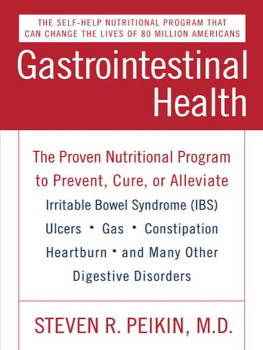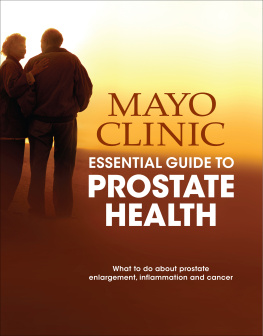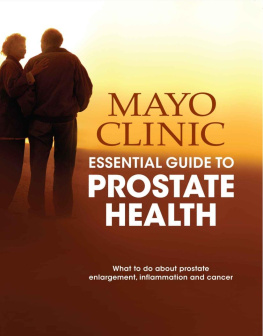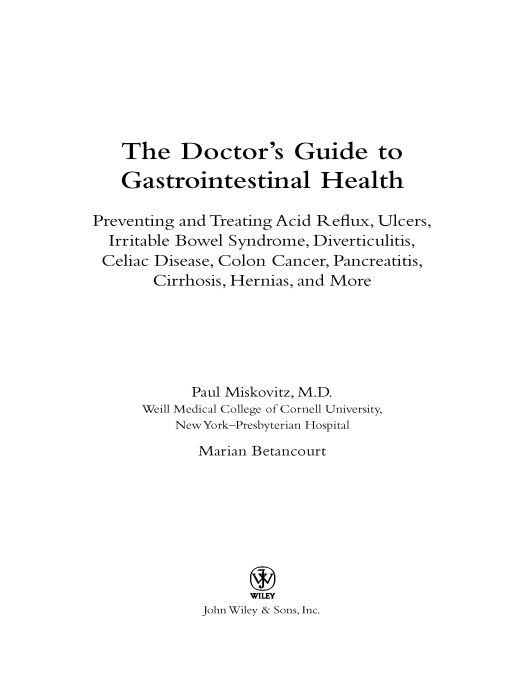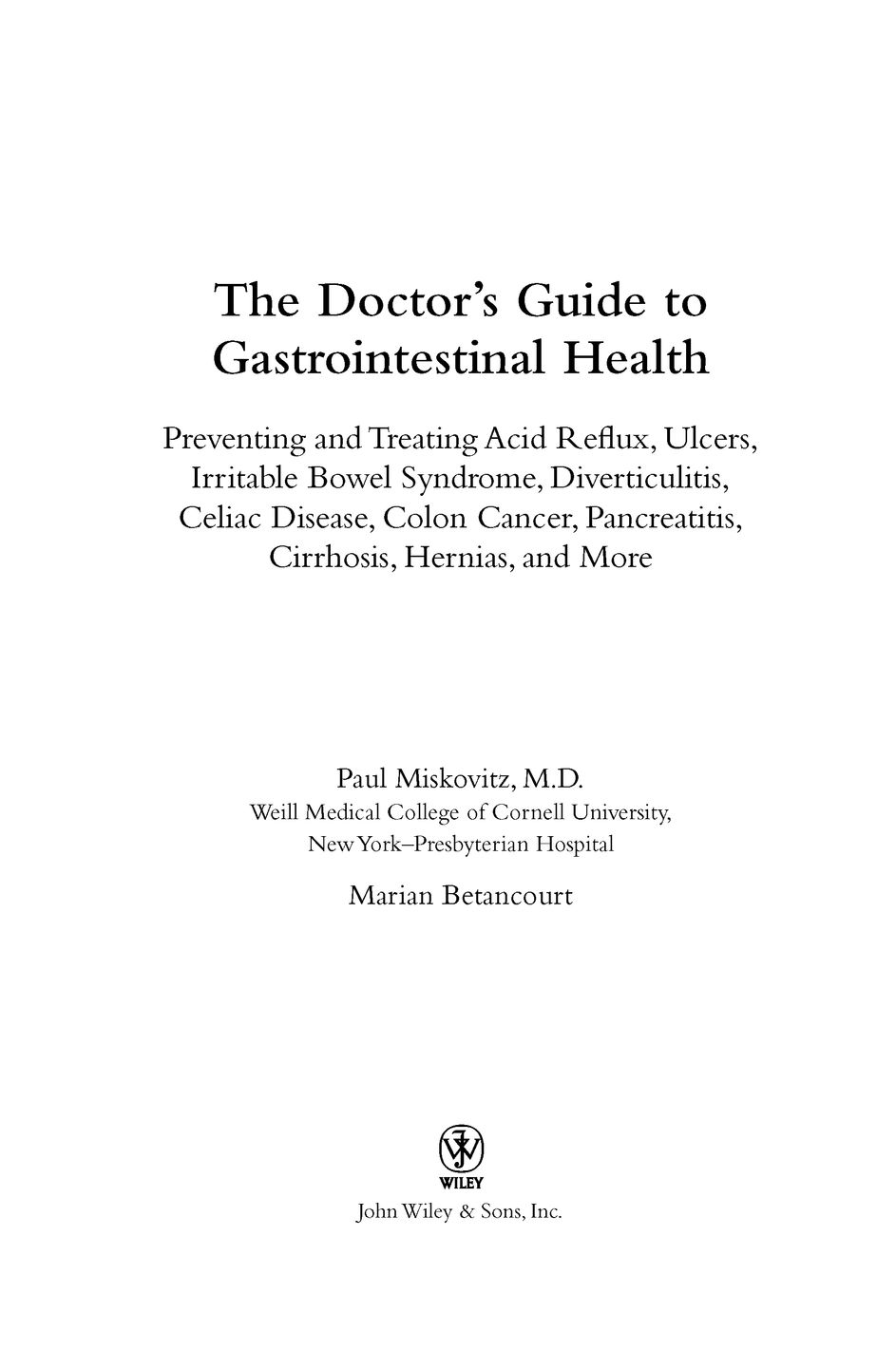Marian Betancourt - The Doctors Guide to Gastrointestinal Health: Preventing and Treating Acid Reflux, Ulcers, Irritable Bowel Syndrome, Diverticulitis, Celiac Disease, Colon Cancer, Pancreatitis, Cirrhosis, Hernias and
Here you can read online Marian Betancourt - The Doctors Guide to Gastrointestinal Health: Preventing and Treating Acid Reflux, Ulcers, Irritable Bowel Syndrome, Diverticulitis, Celiac Disease, Colon Cancer, Pancreatitis, Cirrhosis, Hernias and full text of the book (entire story) in english for free. Download pdf and epub, get meaning, cover and reviews about this ebook. year: 2010, publisher: Wiley, genre: Children. Description of the work, (preface) as well as reviews are available. Best literature library LitArk.com created for fans of good reading and offers a wide selection of genres:
Romance novel
Science fiction
Adventure
Detective
Science
History
Home and family
Prose
Art
Politics
Computer
Non-fiction
Religion
Business
Children
Humor
Choose a favorite category and find really read worthwhile books. Enjoy immersion in the world of imagination, feel the emotions of the characters or learn something new for yourself, make an fascinating discovery.

- Book:The Doctors Guide to Gastrointestinal Health: Preventing and Treating Acid Reflux, Ulcers, Irritable Bowel Syndrome, Diverticulitis, Celiac Disease, Colon Cancer, Pancreatitis, Cirrhosis, Hernias and
- Author:
- Publisher:Wiley
- Genre:
- Year:2010
- Rating:5 / 5
- Favourites:Add to favourites
- Your mark:
The Doctors Guide to Gastrointestinal Health: Preventing and Treating Acid Reflux, Ulcers, Irritable Bowel Syndrome, Diverticulitis, Celiac Disease, Colon Cancer, Pancreatitis, Cirrhosis, Hernias and: summary, description and annotation
We offer to read an annotation, description, summary or preface (depends on what the author of the book "The Doctors Guide to Gastrointestinal Health: Preventing and Treating Acid Reflux, Ulcers, Irritable Bowel Syndrome, Diverticulitis, Celiac Disease, Colon Cancer, Pancreatitis, Cirrhosis, Hernias and" wrote himself). If you haven't found the necessary information about the book — write in the comments, we will try to find it.
Diane Sawyer, Co-anchor of ABC News Good Morning America and PrimeTime Thursday
An important, practical, easy-to-read, and easy-to-understand source of information for anyone with a chronic gastrointestinal problem.
Isadore Rosenfeld, M.D., Rossi Distinguished Professor of Clinical Medicine at Weill Medical College of Cornell University and bestselling author
Digestive ailments, whether mild or life-threatening, are a major concern for millions of peopleand they can be difficult to diagnose and treat. Now, in this essential reference book, Dr. Paul Miskovitz, a physician at one of the worlds top medical institutions, helps you understand the causes, symptoms, diagnoses, and medical treatments for a wide range of gastrointestinal disorderseverything from heartburn to IBS to hepatitis C.
This comprehensive, user-friendly guide begins with an overview of how your gastrointestinal system works and how it is affected by lifestyle, age, and emotions. Dr. Miskovitz then explains the disorders that can affect your esophagus, stomach, intestine, gallbladder, liver, pancreas, colon, and abdominal cavityrevealing how to identify and treat problems and, in most cases, prevent them. Youll also learn how to:
* Maintain a healthy gastrointestinal system through diet, exercise, checkups, and screenings
* Find the right gastroenterologist for you
* Identify symptoms and get an accurate diagnosis
* Prevent gastrointestinal problems when you travel
Complete with a list of organizations that provide information and support, The Doctors Guide to Gastrointestinal Health is the ultimate resource for you and your family.
Marian Betancourt: author's other books
Who wrote The Doctors Guide to Gastrointestinal Health: Preventing and Treating Acid Reflux, Ulcers, Irritable Bowel Syndrome, Diverticulitis, Celiac Disease, Colon Cancer, Pancreatitis, Cirrhosis, Hernias and? Find out the surname, the name of the author of the book and a list of all author's works by series.








